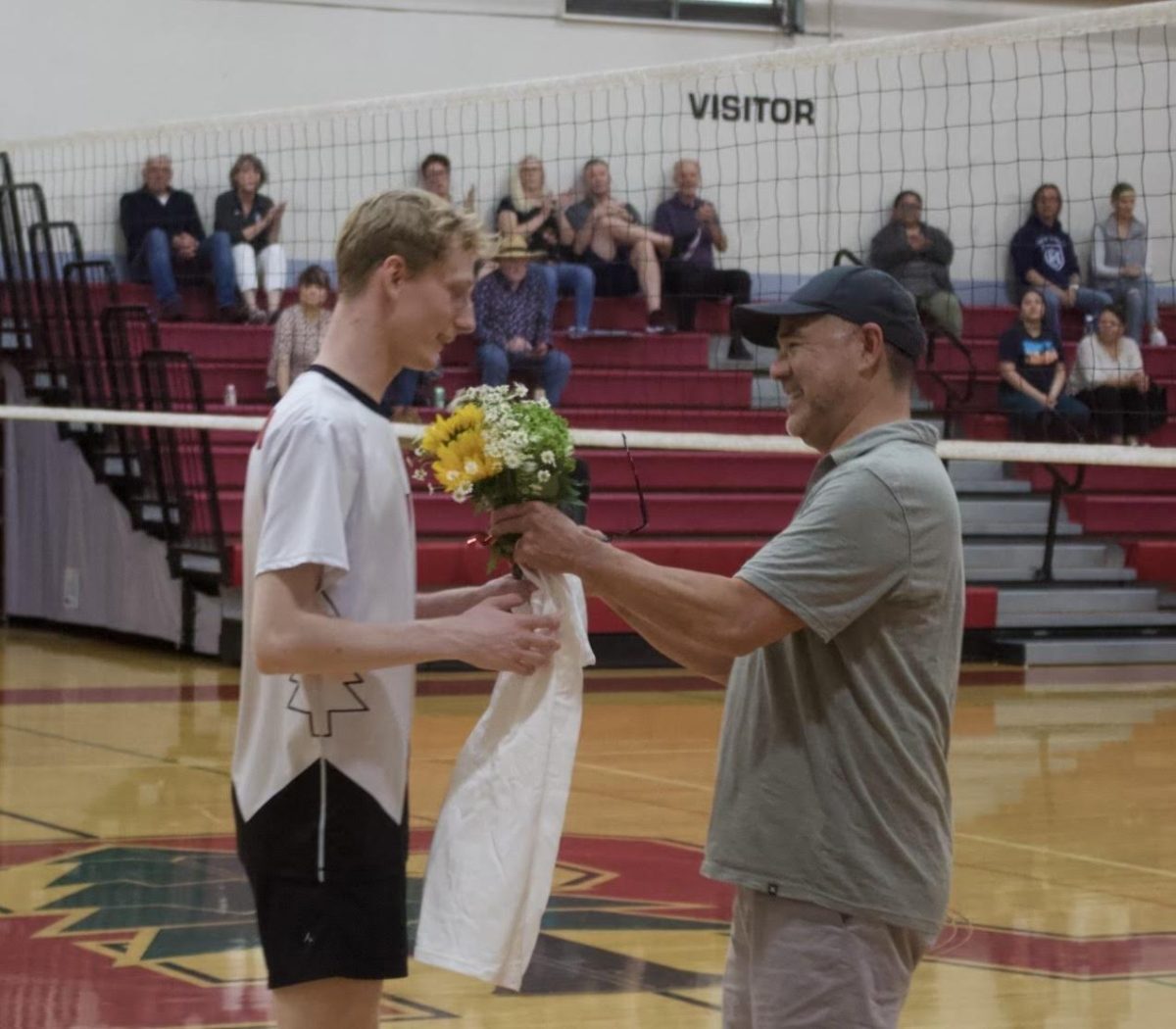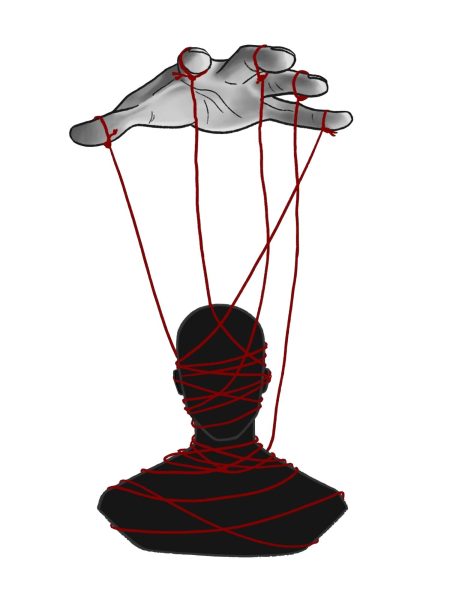What does the future of abortion access hold under Amy Coney Barrett?
December 13, 2020
On Oct. 26, despite pushback from Senate Democrats, Judge and former Notre Dame law professor Amy Coney Barrett was sworn in as an associate Supreme Court Justice by the Republican-dominated Senate, making her the youngest justice on the nation’s highest court. Much of the controversy surrounding this decision stems from Barrett’s ties to conservative organizations that some assume may impact her impartiality, particularly surrounding her views on abortion. There is a specific concern that Roe v. Wade, a 1973 Supreme Court case protecting abortion access in the United States, could be overturned. With abortion being arguably one of the country’s most divisive issues, Amy Coney Barrett’s appointment has alarmed pro-choice supporters.
Barrett has decisively avoided the question of how she would vote if Roe v. Wade was brought to the Supreme Court, reassuring that she wants to view court cases from a neutral stance.
“My personal views don’t have anything to do with the way I would decide cases. I don’t want anyone to be unclear about that,” Barrett said during her confirmation hearing.
However, statements made during Barrett’s career give some weight to concerns over her personal convictions. In 2006, Barrett signed an ad in the New York Times which read, “It’s time to put an end to the barbaric legacy of Roe v. Wade and restore laws that protect the lives of unborn children.” Additionally, in a 2013 Texas Law Review article, Barrett wrote, “If anything, the public response to controversial cases like Roe v. Wade reflects a public rejection of the proposition that [precedent] can declare a permanent victor in a divisive constitutional struggle rather than the desire that precedent remains forever unchanging.”
For Roe v. Wade to be overturned, a state would have to pass a law that limits abortion in some way, and someone would have to sue the state if they felt it restricted their constitutional right to abortion. Then, the case would go to one of the 94 District Courts in the United States for a preliminary hearing. If the losing party disagrees with the verdict, they can then take the case to one of 13 U.S. Courts of Appeals. Whichever party loses that case can then go to the Supreme Court. It is important to note that the Supreme Court is asked to review over 7,000 cases a year and only chooses to review 100-150. In that respect, the possibility of the Supreme Court looking at Roe v. Wade again is not likely. However, should it be chosen, with the conservative majority on the court, it is possible that it could be overturned.
Barrett’s belief that Roe v. Wade should not be deemed a final decision is one reason pro-choice advocates are concerned about its future. Despite Barrett’s claims that Roe v. Wade does not reflect most of the American people’s beliefs, 61 percent of Americans agree that abortion should be legal, according to the Pew Research Center.
Many Redwood students align with that majority and feel particularly passionate about judicial neutrality and the future of abortion access. According to the December 2020 Bark Survey, 79 percent of students are somewhat concerned or concerned about abortion access being threatened in the future in California or the United States. Sophomore Theresa Schmidt, who describes herself as pro-choice, believes that Barrett should prioritize impartiality.
“Making decisions like [Roe v. Wade] shouldn’t really be based on your personal views,” Schmidt said. “I feel like if [Barrett] feels so strongly in one direction, then it’s going to affect a lot of the things that she does.”
Freshman and pro-choice advocate Emma Sixta J. shares Schmitt’s concern and questions the timing of Barrett’s appointment.
“[I do not think] it is fair that she was brought in right before the election. [The winner of the election] should have [appointed a justice] after the election. Especially because she is not going to be replaced until she dies or retires. I do not approve of [her appointment],” Sixta J. said.

While abortion is debated at federal and state levels, medical professionals also play an important role in abortion rights and its accessibility; they are responsible for presenting all of the options to their patients. Bay Area-based gynecologist Dr. A, whose name has been omitted for anonymity, has performed abortions for over 20 years and believes that political opinions have no place in the examining room.
“My job is to talk to [the patient] about the options. I will never tell [them] what to do,” Dr. A said. “[It] is not right [to decide for them]. [They] have to make the choice that is right for [them] and that [they] can live with. It’s also my job to tell [them] that I support [them] in whatever [they] choose.”
In light of Barrett’s appointment, Schmitt is concerned that the right to choose could be in jeopardy.
“I actually really am worried [about the future of abortion rights] because [Barrett] says that she’s not going to do anything that’s unconstitutional, but she still believes that Planned Parenthood should be defunded,” Schmidt said. “I feel like with the wrong people in office, that could easily happen, which isn’t a good thing.”
In 2019, Planned Parenthood provided over 345,000 abortions and offered STD and cancer screenings, birth control, vaccines, prenatal pregnancy care and more to 2.4 million people. Defunding Planned Parenthood would mean limited access to these services, as well as abortions.
Though Planned Parenthood provides widespread care, abortion is not largely funded by the government. The Hyde Amendment bans the use of federal funds for abortion except in the case of saving the life of the woman or if the pregnancy is a result of incest or rape.
Although it does not appear that abortion will be an issue looked at by the Supreme Court in the near future, it was on the ballot in many states during the 2020 election. In Colorado, abortion access was maintained after the rejection of Proposition 115, which would have banned abortions after 22 weeks of pregnancy. However, other states saw more restrictions.
In Louisiana, the proposed state constitutional Amendment No. 1 passed, which added language to the constitution that says it offers no protections for abortion rights or funding. With the pro-life organization Right to Life Lousiana leading the movement for this amendment, many pro-life advocates saw this as a win. Associate Director of the Louisiana branch Angie Thomas believes this is a landmark success and that these bills needed to be paired with support for pregnant women, such as financial help for childcare and mental health support.
“This allows [Right to Life Louisiana] to move into another chapter where we can concentrate on advocacy for policies that will help women in an unplanned pregnancy get real support, as opposed to abortion, which is … a very traumatizing thing,” Thomas said.

Right to Life Lousiana differs from other pro-life organizations in that, although it actively advocates for the banning of abortion, it works to provide support for pregnant women.
“We do not believe that abortion is good for women [or] for children. We are working toward a pro-life nation and one in which abortion becomes unthinkable because we’ve met the needs of women,” Thomas said.
While Right to Life Louisiana believes that prohibition is the way to decrease the number of abortions, studies dispute and other medical professionals disagree with this belief. According to the Guttmacher Institute, a pro-choice research organization, between 2011 and 2017, 32 states saw 394 new abortion restrictions, but several states with these new restrictions actually had abortion rates increase. Meanwhile, 13 out of 15 states that opened new abortion clinics saw a decrease in abortions.
Some medical professionals agree that limiting abortion access does not limit abortions, and it actually makes them riskier. University of California, San Francisco professor and obstetrician-gynecologist Dr. Daniel Grossman has been an involved expert on reproductive policy research and implementation. Early in his career, Dr. Grossman worked in Sub-Saharan Africa and Latin America with the non-profit, Population Council, which seeks to improve reproductive health around the world. Through Population Council, he witnessed the danger of limited abortion access firsthand.
“I’ve seen people who go to untrained providers or do things on their own that cause harm. [For example], a perforated uterus related to an unsafe abortion. Infections, though those have become less common as people have access to medications. But, I have also seen people that use methods that they have heard are effective, sometimes multiple methods, but that ends up delaying the whole process of getting an abortion in a clinical facility. There can be a lot of harm when people have to take matters into their own hands,” Grossman said.
Grossman emphasized the importance of legal abortions, citing that some women are prosecuted for their attempt to terminate their own pregnancies.
“Another risk, that I have not seen personally, but certainly know of is legal risks associated with self-managed abortion. In other countries, women are jailed for losing a pregnancy when it is unclear if it was a spontaneous loss or self-induced. There are about 20 cases here in the U.S. where women have been prosecuted or criminalized for allegedly self-managing their abortion,” Grossman said.
Safe access to abortion is not an option in many places around the world. With Amy Coney Barrett on the Supreme Court, many worry if the United States could be next. While some advocate for restricting and banning abortion, others fight for better and safer access and advocate for a woman’s right to choose. For more information, visit www.prochoiceamerica.org or www.nrlc.org
























